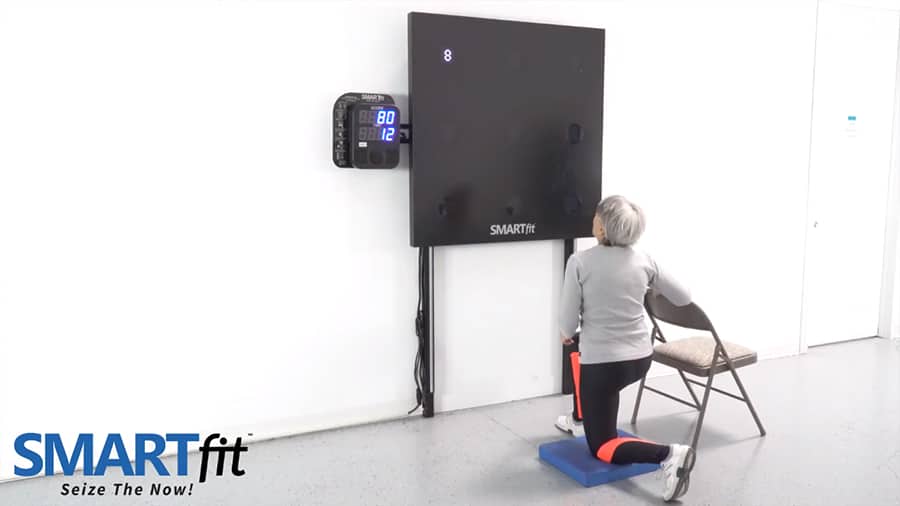Study finds that therapists can effectively use gamified rehab tech for Parkinson’s disease

A recent study has revealed that therapists can safely and effectively use neurorehabilitation technology to implement gamified physical-cognitive task training to help people with Parkinson’s disease to recover as part of their rehabilitation programme.
The study – ‘Gamified Dual-Task Training for Individuals with Parkinson Disease: An Exploratory Study on Feasibility, Safety, and Efficacy’ – was published on MDPI on 25 November 2021.
Gamified rehabilitation technology can make patients’ recovery journey more engaging, stimulating and rewarding. By using fun and interactive games, patients may feel like they are not participating in a clinical programme but rather an interesting game that helps improves their motor and cognitive functions.
In this recent study, eight participants with mild-to-moderate idiopathic Parkinson’s (including one with mild cognitive impairment) completed two training conditions: gamified dual-task training (DTT) and physical single-task training (STT). Both training conditions were optimised using physio-motivational factors, on changes in motor and cognitive outcomes, and self-assessed disability in activities of daily living.
For each training condition, the participants attended 2-3 sessions per week over 8.8 weeks on average, with the total amount of training being equivalent to 24 one-hour sessions.
STT consisted of task-oriented training involving the practice of functional tasks, whereas for gamified DTT, the same task-oriented training was implemented simultaneously with varied cognitive games using the SMARTfit Trainer system.
Both training conditions were optimised through continual adaptation to ensure the use of challenging tasks and to provide autonomy support. Training hours, heart rate, and adverse events were measured to assess the feasibility and safety of the gamified DTT protocol. Motor and cognitive function as well as perceived disability were assessed before and after each training condition.
The results show that the use of gamified DTT is feasible and safe and that, importantly, significant improvements were achieved in more outcome measures after gamified DTT than they were after STT.
In conclusion, the research highlights that therapists can safely and effectively use neurorehabilitation training devices like the SMARTfit Trainer system to improve motor and cognitive function, and perceived disability, in patients with Parkinson’s.
Previous studies have also demonstrated the benefits of gamified rehabilitation devices.
In a clinical trial of 30 patients, researchers from Imperial College London, the University of Southampton and Imperial College Healthcare NHS Trust found that an arm-training device called GripAble enabled on average 104 upper limbs (UL) repetitions per day whereas conventional therapy achieved 15 UL repetitions per day.
GripAble increased the number of arm exercises stroke patients do without professional supervision.
Similarly, in a partnership between academia and the third sector, the University of Strathclyde and Chest Heart and Stroke Scotland are looking to revolutionise stroke care by making rehabilitation technology accessible. They are working together to combine cutting-edge robotics with computer gaming that encourage people to participate in their own rehabilitation journey.

